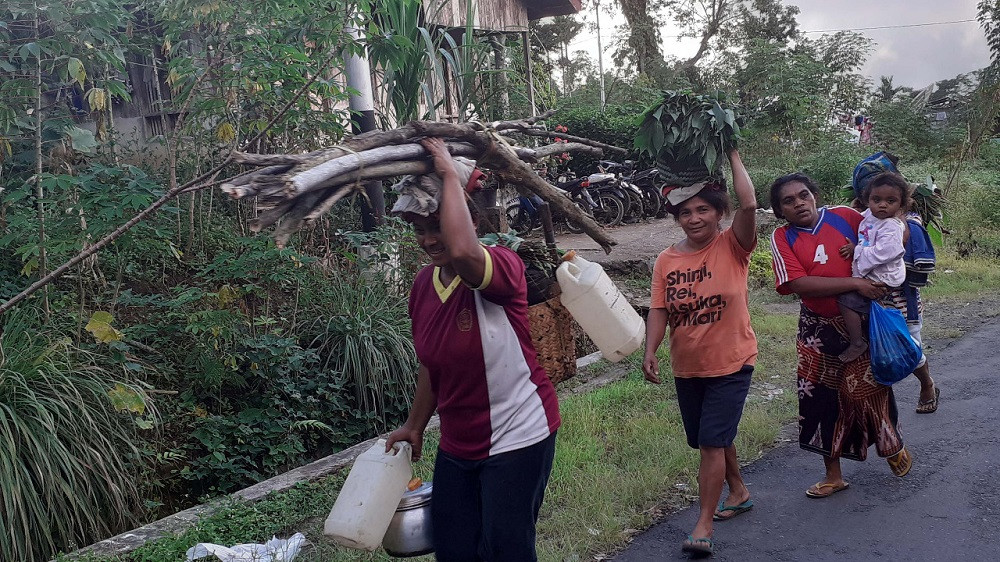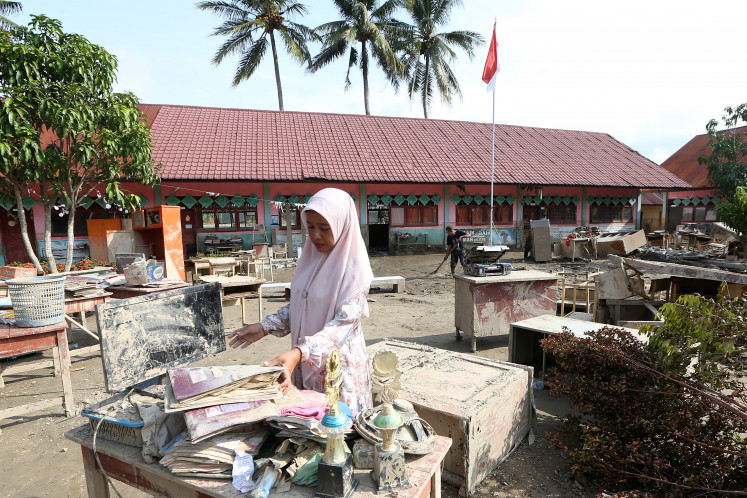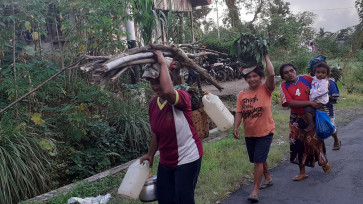Popular Reads
Top Results
Can't find what you're looking for?
View all search resultsPopular Reads
Top Results
Can't find what you're looking for?
View all search resultsAddressing poverty and unemployment through education
Sustained investment in equal and quality education access is needed to broaden mindsets, increase literacy and generate self-empowerment for the betterment of not only individual lives, but also the nation's future.
Change text size
Gift Premium Articles
to Anyone
F
or a country ranked among the world’s 20 largest economies like Indonesia, the low percentage of people with postgraduate education, which stands at only 0.45 percent of the productive population, is a cause for concern. This figure is considered very low even when compared to neighboring countries such as Vietnam and Malaysia, where the ratio reaches 2.43 percent.
Undeniably, education in Indonesia still faces various challenges that need to be addressed collectively. Looking deeper, it's not just a matter of low postgraduate ratio, but also the unresolved issue of equal distribution of access to basic education.
The National Socio-Economic Survey (Susenas) conducted by Statistics Indonesia in March 2023 found there were individuals aged 15 and above who had never attended school, both in urban and rural areas. In urban areas, the rate stood at around 1.93 percent, while in rural areas it was approximately 5.11 percent. Though these percentages may seem small compared with the total population, the findings are regrettable.
Furthermore, disparities in the educational attainment level are still evident. In urban areas, about 49.16 percent of individuals aged 15 and above have completed the mandatory 12-year education. Meanwhile, in rural areas, 72.02 percent of individuals aged 15 and above only completed junior high school or below. This means that only about 27.98 percent of individuals in rural areas have finished junior high school or equivalent.
Educational disparities are not only seen between urban and rural areas but also based on economic status. Individuals aged 15 and above in the lowest economic status (quintile 1) were predominantly those with only elementary school education, while those in the highest economic status (quintile 5) were dominated by high school graduates. This data reflects the existing inequality in education access and opportunities involving economic factors. It is also evident in the number of poor household heads who cannot access education.
According to BPS data in 2023, around 38 percent of poor household heads had education equivalent to elementary school. Moreover, 26 percent of poor household heads have not completed elementary school, including those who have never attended school. This situation is crucial to address because every citizen should have the right to education. Essentially, human resources can only be improved through education, and with a highly skilled workforce, individuals are more likely to be empowered to improve their living conditions.
While education levels do not always correlate directly with one's poverty status, acquiring education broadens one's mindset. With a broader mindset, opportunities are expected to open up, and creativity emerges to enhance the quality of life.



















